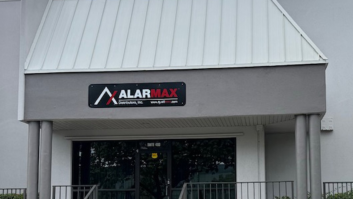As recently as 1996, electronics and appliance vendors, buying groups, unaffiliated independent dealers and distributors had no less than six inventory finance firms they could count on to fund the purchase and timely payment of goods.
These so-called “floor-planning” programs were first devised in the 1950s by major appliance manufacturers such as GE, Westinghouse and Whirlpool to support their dealer networks. According to industry veteran Jim Hentz, now corporate development executive VP of TCF Inventory Finance, here, the programs were a win-win for all. Manufacturers could fuel sales, secure repayment, reduce billing and collection operations, and track the performance of their products nationwide. Retailers in turn had an alternative source for credit, could choose from a range of payment plans, receive discount incentives and provide for unsold inventory.
Eventually, upward of 85 percent of independent retailers would come to utilize floor-planning programs, Hentz estimates, representing approximately 50 percent of all majap and CE sales. (National chains generally maintain open accounts with vendors, supported by cash flow and credit lines.) Dealers did business with such finance firms as Bombardier, Deutsche, Transamerica, GE, Frigidaire, Whirlpool and later Textron, but consolidation through divestitures and liquidation eventually narrowed the playing field to just one: GE Capital Equipment Finance (GECEF).
The industry was given a second alternative last year with the creation of TCF. A subsidiary of TCF Financial Corp., a regional Minnesota-based bank with more than $18 billion in assets, the firm was built upon the former CE/majap businesses of Transamerica and Textron, and led by an experienced management team that also includes president/CEO Ross Perrelli (Transamerica, Borg-Warner), chief risk officer Chris Meals and general counsel Vincent Hillery.
The timing couldn’t be better for dealers faced with soft demand, increased competition and tighter credit following last fall’s financial market meltdown. “We’re a fresh source of capital,” Hentz said, and thanks to the solid balance sheet of its parent, which avoided sub-prime mortgages, TCF’s credit requirements have remained unchanged throughout.
Nevertheless, many independents have been unable to bring expenses in line with declining sales, Hentz said, and, without any succession plan in place, are opting to close shop and walk away from their businesses. The attrition rate, he estimates, is approaching 10 percent.
Though unfortunate, flushing out the weaker operations will allow stronger businesses to survive and prosper, he said, as they head into an improving second half.
“It won’t be like 2005 or 2006,” Hentz said of the holiday season, “but it will probably be OK.”













